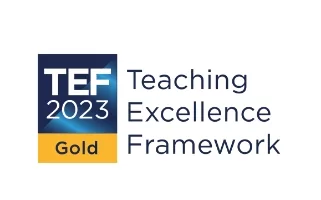Peer review process
Norland Educare Research Journal
Manuscript double-blind peer review
Peer review is an essential component of formal scholarly communication and lies at the heart of the scientific endeavour of the journal. Peer review assists editors in making editorial decisions and, through editorial communications with authors, may assist authors in improving their manuscripts.
Submitted manuscripts are double-blind peer-reviewed, meaning that both authors and reviewers are anonymous. Two reviewers are chosen by the editors to review the manuscript and complete the Manuscript Review Form.
Reviewer expertise and anonymity
The reviewers are chosen based on their expertise and reviewing experience. The reviewers’ identity is kept strictly confidential.
Reviewer confidentiality
Manuscripts received for review are confidential documents and must not be shown to or discussed with others. Information or ideas obtained through peer review should not be used in a reviewer’s own research or for their own professional advantage. This applies also to invited reviewers who decline the review invitation.
Reviewer impartiality
To uphold impartiality, reviewers agree to declare any potential conflict of interest, for example:
- direct competition with authors
- collaboration or co-working with any of the authors
- a position which may prevent them from giving an objective opinion of the work.
Any invited reviewer who has a conflict of interest resulting from competitive, collaborative or other relationships or connections with any of the authors should notify the Editor-in-Chief and decline the invitation to review the manuscript.
Reviewer promptness
Any invited reviewer who feels unqualified to review the research reported in a manuscript or knows that its prompt review will be impossible should immediately notify the editors and decline the invitation to review so that alternative reviewers can be contacted.
Standards of objectivity
The reviewers judge the quality of the manuscript objectively, against the review criteria, which are:
- appropriateness for the journal
- originality and significance
- methodological rigour
- clarity and conciseness
- language, academic writing style and length of the paper
- citations and references
- declarations and acknowledgements.
Comments and observations should be formulated clearly with supporting arguments so that authors can use them to improve the manuscript. Personal criticism of authors is inappropriate and unacceptable.
Reviewers’ comments
Reviewers complete the Manuscript Review Form and are expected to provide supporting remarks and comments suggesting ways to improve the quality of the manuscript. Reviewers may highlight the omission of any relevant work and suggest its inclusion by explaining its significance. When inclusion of a reviewer’s own work is recommended, the editor-in-chief reserves the right to exclude excessive citation to maintain their anonymity. Reviewers should also notify the Editor-in-Chief of any substantial similarity or overlap between the manuscript under review and other manuscripts, published or unpublished. Reviewers should refrain from any personal criticism of the authors.
Reviewers’ recommendations
The reviewers may make an initial recommendation to:
- unconditionally accept the paper
- accept the paper after minor corrections
- request mandatory amendments that will lead to likely acceptance
- request major revision and encourage resubmission
- reject the paper outright.
The reviewers’ decisions serve as a guide to editors to make a final decision.
Author obligations during the review process
Authors should respond promptly to the comments of the reviewers and any requests by the Editor-in-Chief. In the event that revisions are required, authors should respond systematically to all comments made by the reviewers and/or submit any additional materials requested by the deadline given to assist the timely publication of the journal.



